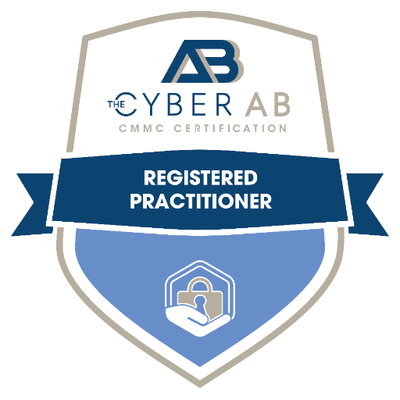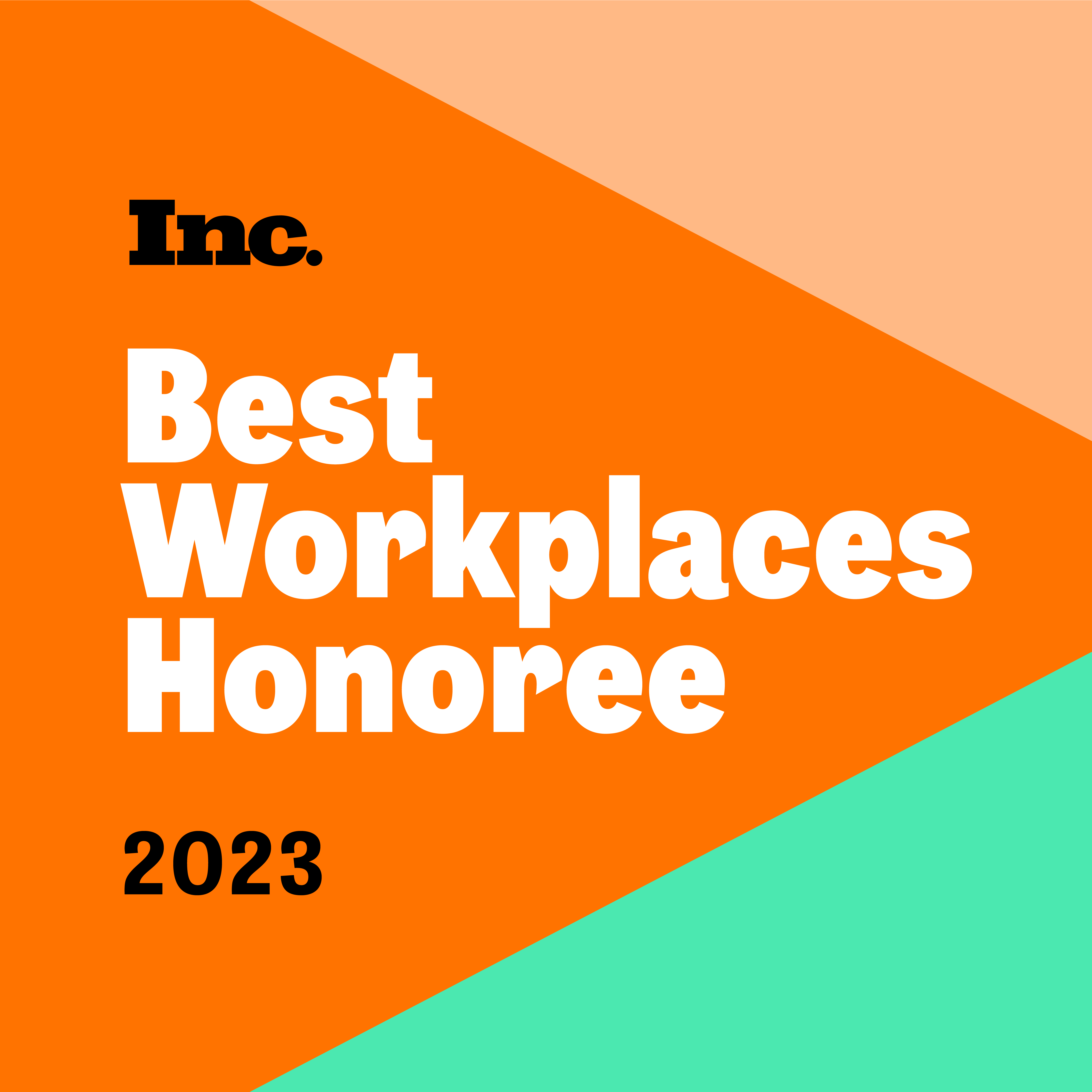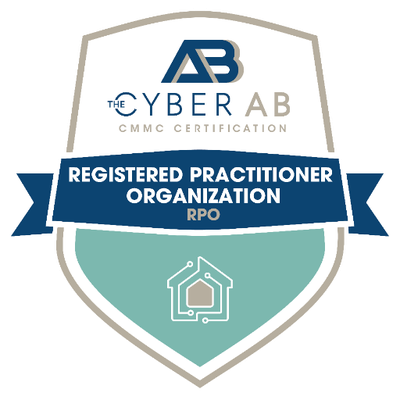Humans are producing endless amounts of organic waste every single day, and despite being mostly recyclable, a massive chunk of it only piles up in landfills. Jean-Louis Kindler wants to help reduce trash in the world by maximizing the impact of hydrogen production. Joining John Riley and George Usi, he talks about their work at Ways2H, where they convert organic waste into reusable hydrogen to fuel vehicles and produce clean energy. Jean-Louis discusses the biggest roadblocks they are facing to put their process into full adoption, particularly legal challenges. He also expresses his dream to see more fuel cell cars on the road, bringing the world closer to a more sustainable future.
—
Watch the episode here
Addressing The Organic Waste Problem Through Hydrogen Production With Jean-Louis Kindler
We have an amazing guest who is a literary lover who lives in a world of stories. He is someone who’s looking for a cozy nest to settle in on the East Coast at some point but now hails from Long Beach. I wanted to introduce you to the Chief Executive Officer of Ways2H, Jean-Louis Kindler. Welcome, Jean-Louis, to our episode.
Thank you, George. Thank you, John, for having me. It is a Friday afternoon. It will be an interesting conversation anyway.
We hope so. We tend to be a little cheesy on Fridays, but it is later in the day. We’re all ready to go home, or if we’re already working from home, go into the drink cabinet and have our libations. We’re going to get started with our trademark. Is it a trademark, John? I’m not even sure. It’s the question that we ask in every episode at the beginning. If the cyber risk was a pizza and the frameworks that are used make up the crust, what is the riskiest topping that you have seen, and what topping would you equate it to?
I now understand why you say that this episode might be a little cheesy. It’s because we’re talking about pizza. I grew up in a country where we were extremely proud of our infrastructure and our nuclear power. We certainly won’t go into a debate about whether nuclear is good or not, and my opinion on that. I can answer questions, but it’s not the topic for this episode. I’ve been in the US for about eight years. What I have always been very surprised about here is the risk we are facing with power interruptions.
You’ll tell me it’s not cybersecurity. I’ll tell you that it can very much be because there have been and we have seen cases where power generation sites for those big CHP or power generators were controlled via a network. The more our internet is getting into our lives, the more this control is getting important. The more integrated grid we see, the more this control is getting important. When I think of cyber risk, it is more than identity theft or these kinds of things. It is a potentially huge issue. It is having people take control of those power stations. If we don’t have electricity, we are done. This is a major issue.
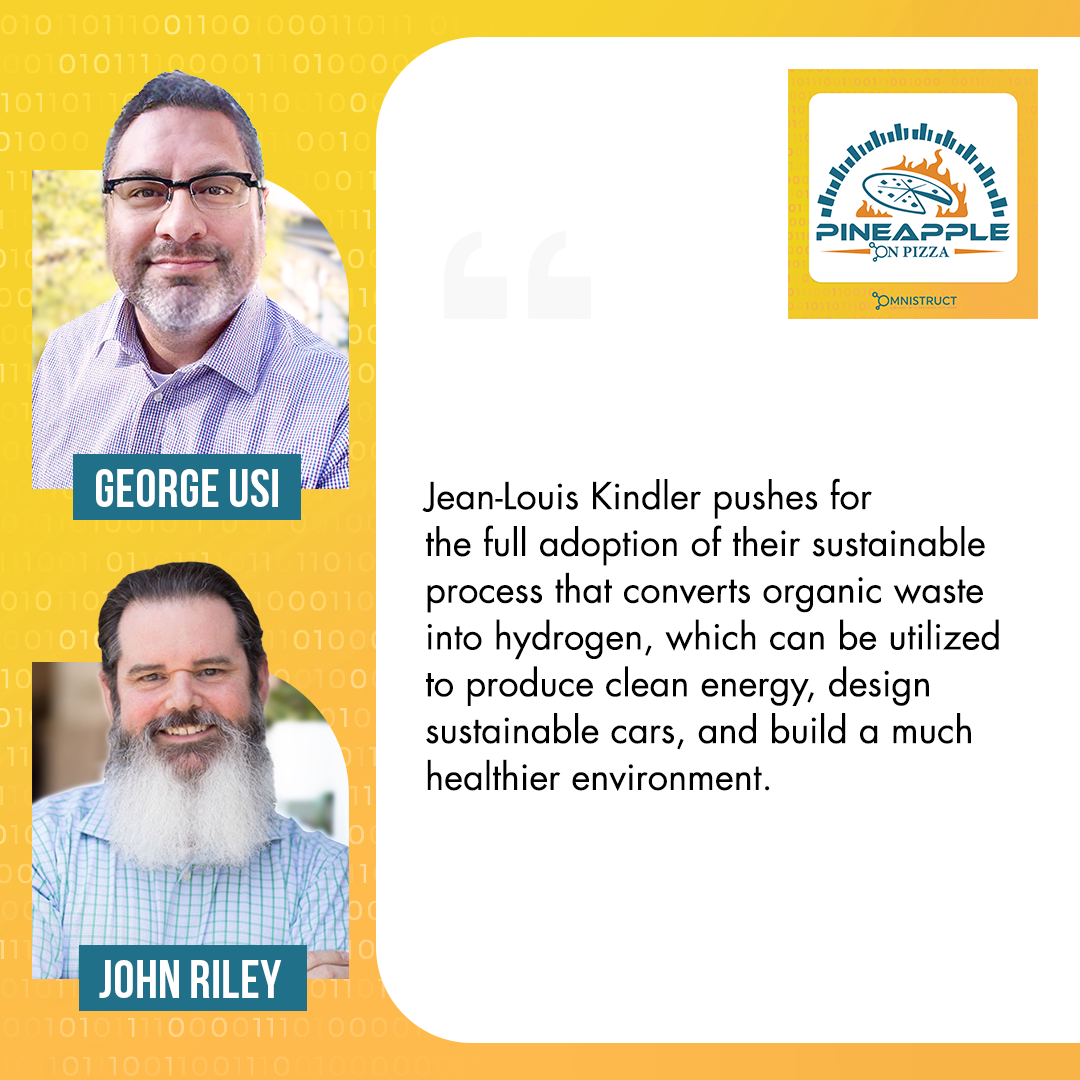
What is power gen doing to address the highest risks that they’re experiencing?
It’s not only a cyber risk because we also see other potential risk factors like weather and everything. I strongly believe that communication in the past was centralized where you had your phone and the phone center. You were calling that center, and then that center was sending you to someone. Now we have the internet. That’s great. We have power stations. This is very 20th century. This is very industrial.
We have always loved very big things, so we have huge power stations. The bigger, the better. We have the big nuclear power plant and the new big nuclear power plant, or coal-fired or oil-fired. We have those power plants. They generate power for the whole region. It’s easy to target this power plant and shut it down by getting into its control systems.
The primary solution for that is developing a grid. It is developing what we call a smart grid because other aspects are beyond simply the control of those. Having a grid of distributed power generation that can relay each other if one fails makes the cyber risk probably as dangerous in a way. Those different power stations have to be connected to each other because they’re controlled. They need to be aware of what’s happening with the other ones. On the other hand, it means that we are able to spread the risk of having one fail over several of them. To me, this is the primary solution.
What topping do you equate that to?
We have the crushed tomato because this is the one that comes right on top of it. It’s one of the very important basis for our life. It is electricity, water, and the air we breathe.
I would’ve said maybe the oven. Not to steal your thunder because you’re talking about electricity, power, and all that. I wanted to make sure. That was my thought.
It is critical. We have identity theft. We have people who will steal your money from your bank account or the internet. You don’t die. It may happen, but it’s not lethal. When it’s really cold outside, and you have no power to heat your house, now we’re talking about a serious problem. That’s important.
We have a similar problem where we live and in other states with similar climates or the US. It gets very hot here. We tapped out 116 degrees. If air conditioners aren’t working, we see both sides of the spectrum. Interestingly enough, this topic is something I’m not super familiar with. Where I’m located is right next to the transmission control for all the power on the West Coast. West Mississippi generally controls that. People I know who work there are often talking about the issue of controlling power transmission, especially in solar. When power is sent back to the grid, they could take down the grid if there’s too much power generation coming from solar.
We know that there are a lot of challenges within energy in general. Right on with the bigger risk is nothing moves without power. You certainly can’t work remotely if you don’t have any power. That’s for sure. I would equate a power outage to a serious cyber-attack. It’s the same as the internet going down to some degree. In a lot of situations, people won’t be able to access it.
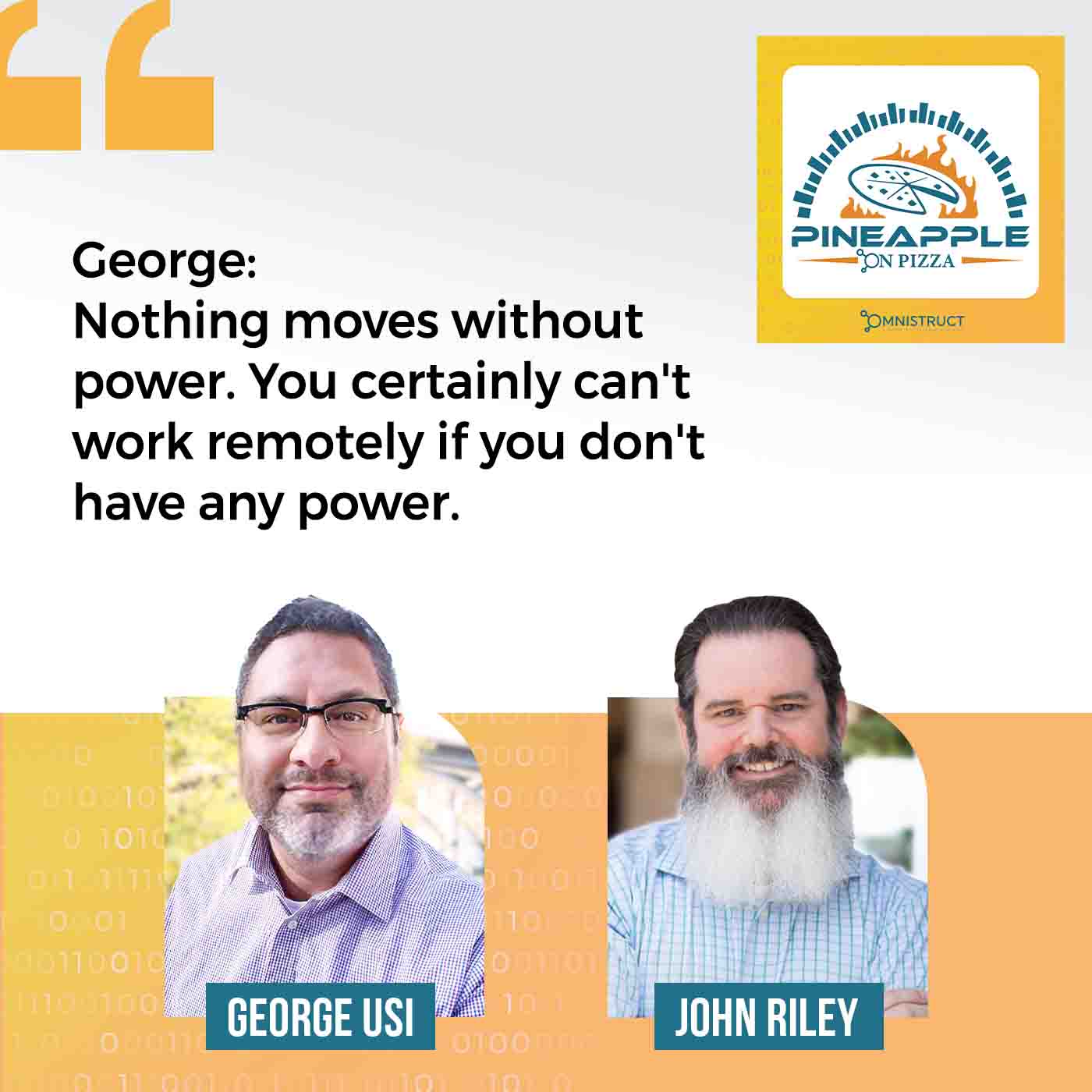
Even cars. Think about it. When we look at the energy profile, if we look at the whole planet Earth, there is about 20,000 terawatt hour of power generated by the grid energy per year. It is 20,000 terawatt hours of energy or electricity per year on the globe. The energy being used for transportation, which we’re talking about primarily oil, is 30,000 terawatt hours. In theory, you can still drive your car even if there’s no power. This is changing. We’re talking about electrifying everything. I don’t exactly know when this was, but I heard that California was trying to ban gas ovens. How am I going to be cooking my pizza? With an electric oven?
Wood-fired.
We have wood fires in California. We definitely cook the pizza. Every industry and every profession has something that keeps you up at night. What’s yours?
Having a big problem. Unfortunately, this problem is universal. We have two billion tons of waste going to landfills every year. That’s huge. We don’t know what to do with our waste. To be perfectly honest, is this keeping me up at night ritually? Not exactly. However, when I take my car, drive down the hill, and go to my grocery, I see litter and waste on the side of the road. Like every normal human being, I take my waste and put my waste into garbage bins. I see and know because this is what I’m doing for a living. I know that the waste that goes into the blue bin is the one that is supposed to be recycled. I know that 80% of that will end up in landfills.
Before we move to the East Coast, my wife and I are thinking of going to Mexico on vacation to a gorgeous place called Holbox. It is an island northwest of Cancun on the Yucatan Peninsula. It’s like a postcard. You have the palm trees, the blue sea, the white sand beaches, etc. Right in the middle of this island, if you look at it on Google, all the waste of the island that is piled up is waiting to be taken first by a truck, then by a boat, and then by another truck to a landfill inside Yucatan. The problem is over there, unlike California, we have rainy seasons. When it rains, this landfill or this pile of garbage is nicely floating. It becomes a river and is sent to the Caribbean Sea. This is a nightmare. It keeps me at night.
I was in the Philippines. They’re having the same issue there because it’s 7,000 islands. Anytime you’ve got an island, and you’ve got a load of people, the amount of plastic that ends up in landfills or the ocean is atrocious.
There’s an old cliché, which is out of sight, out of mind. I suffer from that. I had no idea. I learned something new from both of you. That’s one of the interesting things about these kinds of problems. One would expect that there would be some mechanism, regulation, or something of that nature that would help address that. I’m sure even if they do exist, they’re difficult to enforce. At least in terms of regulatory issues, I’m sure that in what you do, there are regulations that impact you. What are those regulations that concern you that you have to think about in your day-to-day?
There are two kinds of regulations. There are regulations I love and the regulations that make my life difficult. It’s also important to talk about the regulations we love because, after all, we need some kind of order in our lives. There is a regulation I love which is Senate Bill 1383, and we’re talking about California. In vernacular words, it is the Landfill Diversion Mandate. It is a regulation that tells the waste processing industry to divert 70% of the organic waste that is going to a landfill. It has to be sent elsewhere. It’s great news because we have a problem.
This is part of the problem that keeps me up at night. This is worldwide. John, you mentioned the Philippines. I mentioned Mexico. We don’t even need to go that far to find the same problem. It is in Western Europe, the US, and Asia. It is everywhere. Landfills are getting filled to the brim. A lot of those landfills are not only offshore, but most of them are greenhouse gas. They are one of the worst greenhouse gas emitters because they emit methane. Depending on how you calculate that, Methane is between 20 and 80 times more potent than carbon dioxide. It is bad stuff.
On top of that, when it rains over a landfill, just like when you make coffee in the morning, that water goes through the landfill. What you get at the bottom of the landfill is some horrible black juice that has taken all the contaminants in the waste. In a lot of cases, that is pulled through the landfill and gets inside the ground. When you have an aquifer under the ground, this contamination goes to your water. This is bad.
Diverting as much as you can from landfills must be a worldwide challenge and goal because we do have a problem with those landfills. The other pathway is potentially burning all that stuff, but here again, we can smell it. We have CO2 that’s directly emitted into the atmosphere. We have other contaminants that we don’t want to talk about, and we better not talk about because we’ll get sued by all sorts of people. It is a massive problem.
That requires solutions. What solution are you working on to help address the problem, if any at all?
Talking about regulations, lucky enough, some regulations are trying to curve down this issue. Landfills are controlled. Emissions are controlled. The whole array of regulations makes our life easier. The reality is that it is not enough. This is what we do every day. We have designed a solution that takes this organic waste. When I say organic, this also includes plastic. The plastic that is floating in the ocean can be treated by our process.
This process takes this organic waste, whether it is biomass, textile, leather, paper, cardboard, or plastics, and heats it up without oxygen to turn that into a gas that is a mix of several gas streams. One of them is hydrogen. Our process is designed so that we can maximize hydrogen production. We push so that all the hydrogen that is contained in the feedstock will be covered.
Our proposal is to use this hydrogen as fuel for vehicles and clean mobility. The best way to use hydrogen is to put it into a device for the fuel cell. The fuel cell is a little piece of equipment where you inject the hydrogen on one side, and you have air on the other side. What goes out is electricity and water. This is perfect. You can drink that water because it’s super pure. It is hydrogen and oxygen recombined to make water. That’s the fuel cell.
If it is in the car, it means that you put hydrogen into the tank of the car. That hydrogen goes through the fuel cell and generates electricity. If you have an electric car that does not need to wait 30 minutes to be fully charged, it takes about five minutes to charge it. If you don’t have a hydrogen car nearby, what you can do is put this hydrogen into a bigger stationary fuel cell where you can feed the grid. This is distributed. It is a way to get rid of our waste in a clean manner. It is a way to generate energy that will be super clean because it emits zero CO2.
It sounds like it’s a no-brainer, but I’m sure that’s not at the same time. What are some of the barriers that have made it difficult for adoption?
We’re back to regulation. For example, not only California but several jurisdictions do not consider processes like ours as a pathway to process waste. Meaning, if you are a waste processing company in California, you cannot use our system because you will not get the permit from the required authorities. There are about a dozen companies like ours that have similar processes. It’s not possible to get a permit to process waste using our solution. It is a legal matter. We can’t blame them. History has been landfills and incineration. It was okay with it.
We must keep in mind that for a long time, we have not realized that incinerating waste was bad for the environment. At some point in time, a long time ago, everyone was thinking that smoking a cigarette was good for health. It’s important to keep history in context and keep the background. I don’t blame California authorities for that. Solutions like ours were not needed, or they thought they didn’t need it. What would we have done with the hydrogen? There were no hydrogen fuel cells for cars. There were no stationary fuel cells to generate power for the grid. We need to see this evolution. We need to have the authorities and regulatory bodies catch up with the necessary evolution that we’re witnessing now.
I can tell you that the legal challenge that you speak of is often a barrier in many ways in terms of regulatory issues. The bigger challenge is adoption. It’s been very interesting. I’m living in Sacramento, close to where a lot of the lawmakers for the state are, as well as some of the agencies and associations. They’re all here. They’re going to be close to the Capitol.
Sometimes, the answer is simpler than we think it is. I’m not trying to defend what we’re doing in the halls of the legislature here in California, but what I have learned is that sometimes, it takes practical application and people to see the light. Can you think of a scenario where you might be able to turn some heads, maybe an agency or a lawmaker, to recognize the value in this process and how you can substantially move the needle?
We do recognize it takes time. I can never say it enough. I can’t blame any agency for being too cautious. After all, we need to be careful about what we do even with our regulations. My life would be easier if I could install systems wherever I want, whenever I want, or whatever we want, but we have to be realistic here. There has to be a legal framework. There has to be a regulatory framework. It is the role.
You tell me I’m a socialist because I’m French. It’s the government or the authorities’ role to give some sort of structure to all this. Some people on the political spectrum will tell you, “Nature can take care of itself. Let enterprises do their job. They will naturally be perfect.” I don’t believe in that. I truly think that there is a need for governance, authority, and frameworks. Here in California, we are in the far West. The far West in the 21st century is not exactly the far West that it was in the movies.
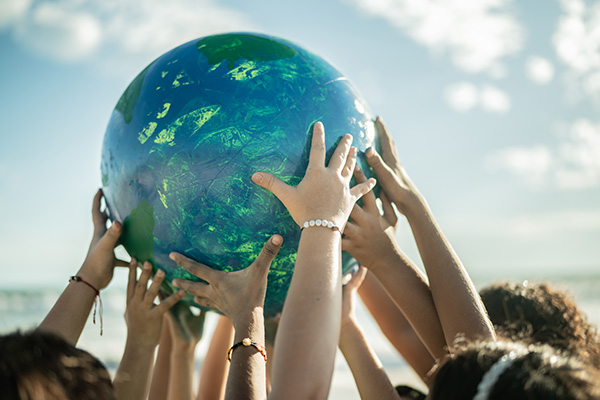
Hydrogen Production: Some people on the political spectrum believe that nature can take care of itself. That is not the case. There is utmost need for governance, authority, and frameworks.
Can you share with us perhaps some of the events that you go to and become a specialist in what it is that you focus on, or even books that you might recommend for any of our audience?
If we talk about events, I’m going to be boring. I was here in Los Angeles at an event called Sustainable Plastics. I’m familiar with the subject, but I was fascinated to see how much progress there has been in the field of bioplastics. In other words, of the 300 million tons of plastics being produced every year on Earth, a lot of it is coming out of renewable sources. This is great because this is exactly what we need.
Being a bioplastic doesn’t necessarily mean that it is biodegradable. Even the bioplastics will end up in the ocean. This is where we come from, and this is where we have our solution. It is good news to see several industries getting into this sustainable future. I’ll be in Houston, Texas, for the World Hydrogen North American Conference. I was talking about our feedstock. Next, I’ll be talking about what goes out of our emissions.
There is somebody that I know, another parent who works for the DMV, from my son’s school. I know that they’re attending that conference. Somebody from the DMV is attending that conference mainly because of hydrogen fuel cells.
It’s fascinating that every time I take my car and drive down the highway, I will see a fuel-cell car. That’s great. It’s still one among a gazillion of cars, but it’s coming. We need to keep history in perspective. In my opinion, we’re living in a moment that is similar to the time when we switched from horses to cars. We don’t have horses, but we are switching from fossil-fueled thermal engine vehicles to electric vehicles. Those vehicles can be battery-electric or fuel cell-electric, but no matter what, they are electric. That makes a big difference. We are witnessing this moment, which takes me to your other question about the books I read and recommend.
There is a book that I found a couple of months ago. It’s a book called The Sovereign Individual. I probably need to find you the author. It was written right at the end of the last century, so 1999 or something. It’s fascinating. At that time, they were more predicting it than witnessing it. It describes how the internet and the evolution of politics and cryptocurrencies are changing people’s daily life to a point where the whole concept of a nation or a country is being turned over. It is not turned down but turned over then. It is fascinating to read this book because it was written many years ago. A lot of what they were saying like, “This may happen,” or, “This may take place,” has taken place and is taking place now.
I’ll be looking into that book in particular because I’m an internet history junkie. Progress and how things are evolving do matter. I’d be interested in picking that one up. We normally have a question about what excites you about the future, but you’ve already covered that to some degree. I would agree with the electric vehicles, but is there something else that excites you about the future that you wanted to bring up?
I built my first waste-to-hydrogen system prototype many years ago. I have been involved closely or more remotely in this whole hydrogen thing for over 25 years. What excites me is the moment when I’m going to be able to push a button and start my car that has been fueled by hydrogen that I have been producing with the waste that was gathered in the neighborhood. What we do here is a circular economy. I want to see that happen. That excites me a lot.
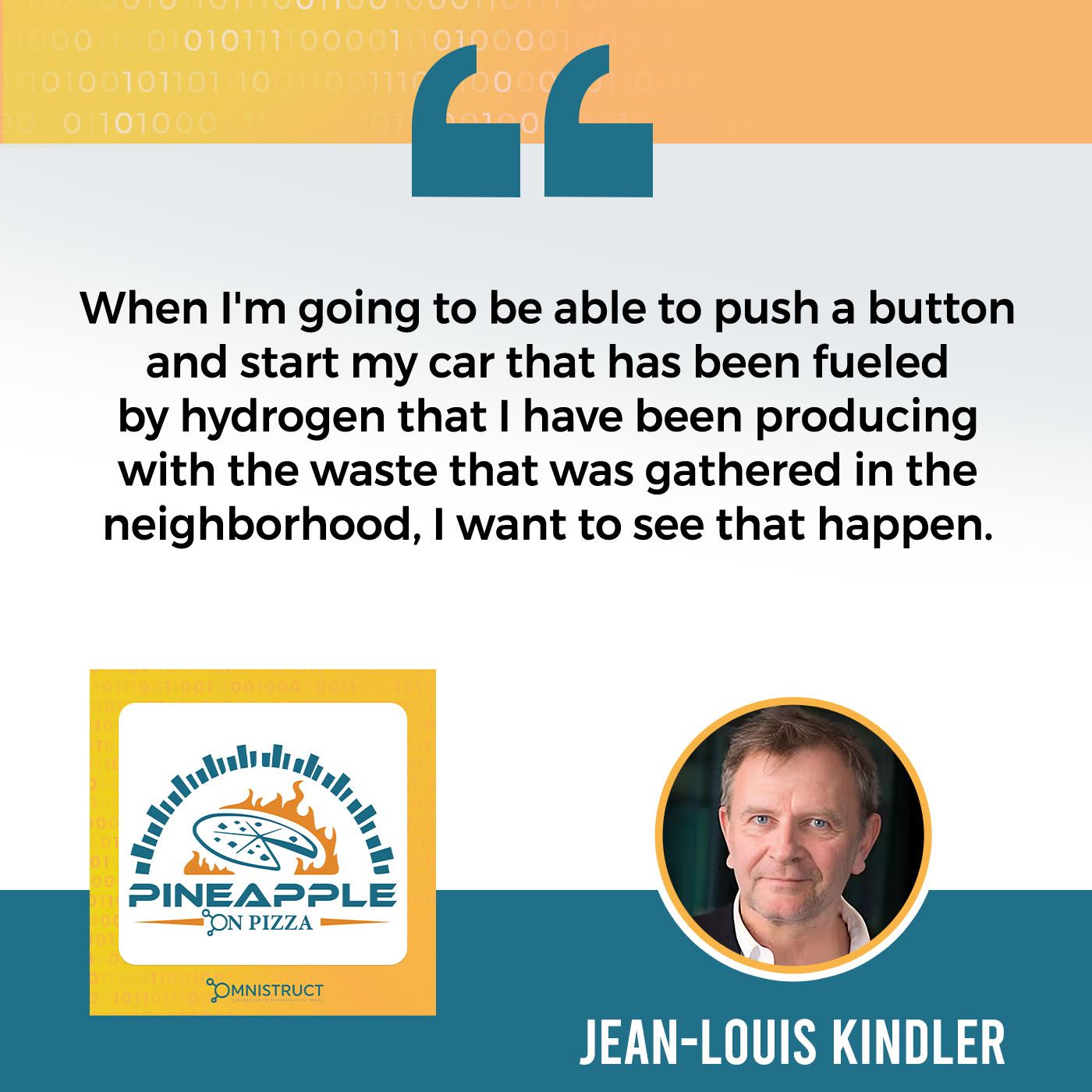
One of the things that we want to make sure we also cover on the lighter side is to tell us a little bit more about what you like to do outside of work when you’re not solving problems. Tell us a little about yourself is the question.
There are a lot of things. It is the same thing. You go to Instagram or LinkedIn and see all these entrepreneurs that are like, “You have to work 24/7.” I don’t think so at all. I’m trying to keep a good balance between what I do. My work is my passion, and there is no doubt about that, but my work is not my whole life. I love cooking, reading, and walking in the woods with my wife. There’s nothing that I love more than when I come back home, right at the entrance of our house on the driveway, there’s a huge eucalyptus. There’s nothing better than opening the window and having the fragrance of the eucalyptus when it’s in the morning. This is great. What’s important to me is keeping a good balance of everything.
I can relate. At the front of my house, we had a beautiful weeping willow. It was a gorgeous tree. One day, I came home, and the homeowner’s association had cut it down. My story doesn’t end as well as yours. You still get to see your eucalyptus tree. That’s part of the equation when you have a homeowner’s association that controls everything in front of your house.
I remember about 30 years ago, I was living in Tokyo, Japan. I have a good friend here who lives in Hollywood. I was living right in the center of Tokyo. Japan has done a great job taking care of the environment, air, etc. I still have it here in my nose. It was wonderful. When I was arriving at LAX Airport, he would come to pick me up and take me to his house. Right in front of his house, there are three citruses. Being in a city and smelling the trees was wonderful. This is one of the things that will make me want to come and live in Los Angeles.
Where I live in Sacramento, we are considered the third most treed metropolitan area in the country.
I didn’t know that.
LA is up there as well. I may have missed one of our questions here, which is if you could go back and talk to the younger version of yourself and give yourself advice, what would it be?
I wouldn’t even try doing that. My younger self wasn’t listening to anyone or anything.
That is the best answer we’ve got so far.
Honestly, I have no regrets. That sounds very vain probably, but first, I wouldn’t try. Second, I’m happy with what happened so far. I have no complaints.
What comes to mind is not vain but practical. What did we really listen to? I was told it was hot, but I touched it anyway, even though my mom warned me like anybody else. How do people find you?
It is primarily LinkedIn because I’m not on any other social media. I’m 60 years old. I grew up where we had a phone with a dial. LinkedIn is perfect. It’s enough. I can focus on that. We also have a website for the company. There’s a little piece in that where you can send messages.
That’s fantastic. Your website is Ways2H.com as well. We appreciate you taking the time. For the audience, this has been another great episode of the show. We’ll see you next time. Thanks, everybody.
Important Links
- Ways2H
- The Sovereign Individual
- LinkedIn – Jean-Louis Kindler
About Jean-Louis Kindler
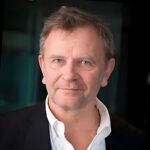 *30+ years of Business Development C-level exec in Europe, Asia, and USA.
*30+ years of Business Development C-level exec in Europe, Asia, and USA.
Although I have now lived well over two-thirds of my adult life outside of my country, I try to retain some of the values that, I like to believe, are key to the French culture: humanism, tolerance, a touch of hedonism and a good balance between personal and professional life.
*Professionally, people would probably refer to me as a developer. Most of my career, including what I am doing today at Ways2H, has been devoted to contributing the development, commercial, marketing, or technological, of solutions to the environment.
*I try to use my available time for reading. When outdoors, you may find me on a golf course, or near the ocean, thinking of a nice sailing destination.
*A literary lover who lives in a world of stories, looking for a cozy nest to settle in on the east coast, making trash talk a reality for three decades, and leading the way in waste innovation.



